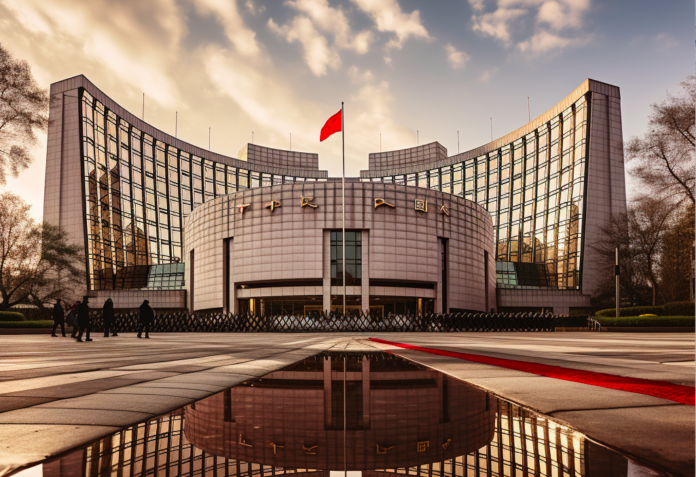China’s senior-most state planning authority has outlined its macro-economic agenda for the second half of the year at a meeting held on 30 July, as it warned of risk in relation to insufficient demand and a fraught international environment.
On 30 July, the National Development and Reform Commission (NDRC) held a briefing on development and reform conditions in the first half of 2023, acknowledging a range of challenges to China’s economic development in the near-term.
“We must confront new difficulties and challenges such as insufficient domestic demand, the operating difficulties of some enterprises, hidden risks in certain areas, and a complex and challenging external environment,” the NDRC meeting said.
The NDRC outlined a total of six macro-economic policy missions for the second half of the year, including:
- Increasing the intensity of macro-policy regulation. “Implementing macro-adjustments accurately and forcefully, strengthening overall macro-policy coordination and advance research preparations, and doing an effective job of guiding expectations.”
- Promoting consumption and expanding investment. “Promoting the steady recovery and expansion of large-scale goods consumption, promoting the rapid growth of service consumption, invigorating private investment, giving play to the guiding role of government investment, and unleashing demand potential in the process of promoting coordinated regional and urban-rural development.”
- Supporting the development of the real economy. “Accelerating the development of a modern industrial system, promoting high-level technological independence and self-strengthening; promoting the transformation and upgrading of traditional industries, accelerating the cultivation and growth of strategic emerging industries, and comprehensively implementing policies to help enterprises to reduce their burdens and increase their efficiency.”
- Deepening reform and opening up. “Earnestly implementing the ‘Two Unwaverings’, continuing to promote the reform of key links, and accelerating the development of a new economic system with a higher level of opening.”
- Consolidating the foundations of economic security. “Strengthening the stable production and supply of grain and important agricultural products, strengthen the construction of energy and resource security capabilities, promote the supplementary chain, chain extension, chain upgrade, and chain building of industrial chain supply chains, and effectively maintain data security.
- Safeguarding and improving people’s livelihoods during the process of development. “Striving to do an effective job in the employment of key groups such as college graduates, continuing to increase household incomes, and improving the level of public services and social security.”
The NDRC meeting highlighted the need to maintain stability, stating that it would “uphold stability as the watch word and achieve progress amidst stability,” while also “achieving new accomplishments during the process of firmly advancing development and reform work.”
Spurring consumption doesn’t mean “emptying pockets or overdrafts on demand”
NDRC deputy director Li Chunlin (李春临) said at a press conference held on 31 July that policies to expedite consumption would not involving “emptying pockets” or “overdrafts on demand.”
“Household consumption is the key link in satisfying hopes of the people for a better life,” Li said. “The starting point of the consumption promotion policy is to help households to economise on expenditures, buy high-quality and low-cost goods, buy new products and services that are more technologically advanced and more in line with demand, and avoid counterfeit or shoddy products.”
Li pointed out that the recently released “Measures on Restoring and Expanding Consumption” (关于恢复和扩大消费的措施) contain a total of 20 measures for further satisfying household consumption demand and unleashing consumption potential, including:
- Stabilising large-scale goods consumption. “The Measures clearly advance initiatives to optimize vehicle purchase restrictions according to local conditions, smooth the circulation of the used car market, and strengthen financial support for car consumption.
- Expanding service consumption. “Guiding all localities to optimize the relevant regulations on the extension of business hours of catering establishments in accordance with local conditions, and supporting the continuous recovery of catering consumption to drive employment.”
- Promoting rural consumption. “The Measures propose policies such as launching green products in the countryside, improving rural e-commerce and express logistics distribution systems, vigorously developing rural tourism, encouraging specialty products to enter cities, promoting rural areas to take up more urban consumer demand, and improving the consumption capacity of rural households.”
- Expanding new types of consumption. “Enriching application scenarios, accelerating the digital transformation of traditional consumption, promote the integration and application of next generation information technology into more consumption fields, actively developing the green and low-carbon consumption market, and creating new consumption demand by improving the quality of supply.”
- Improving consumption facilities. “Effectively improving consumption conditions, and helping people to consume and shop more conveniently, quickly and comfortably.”
- Optimizing the consumption environment. “Comprehensively undertaking campaigns to create confidence to consume, improving standards in key areas of consumption, and breaking through systemic blockages and hidden barriers, to continue to improve and expedite long-term effective consumption mechanisms.”




